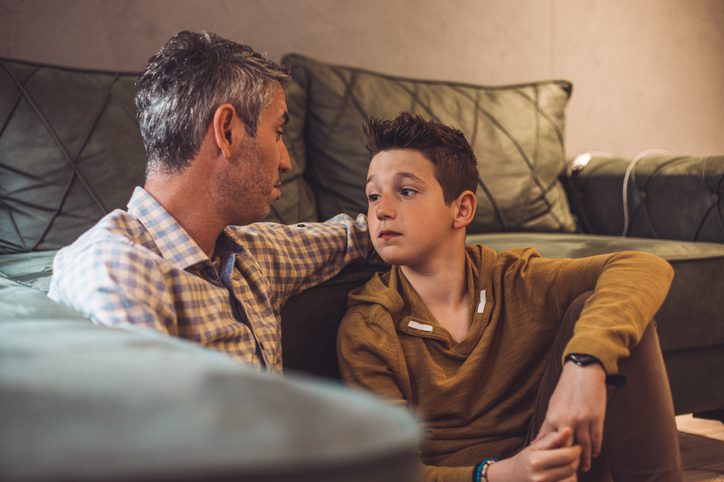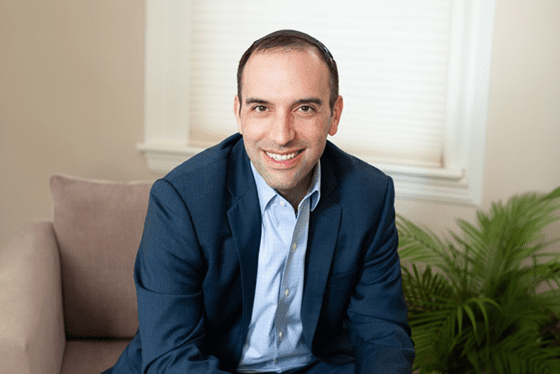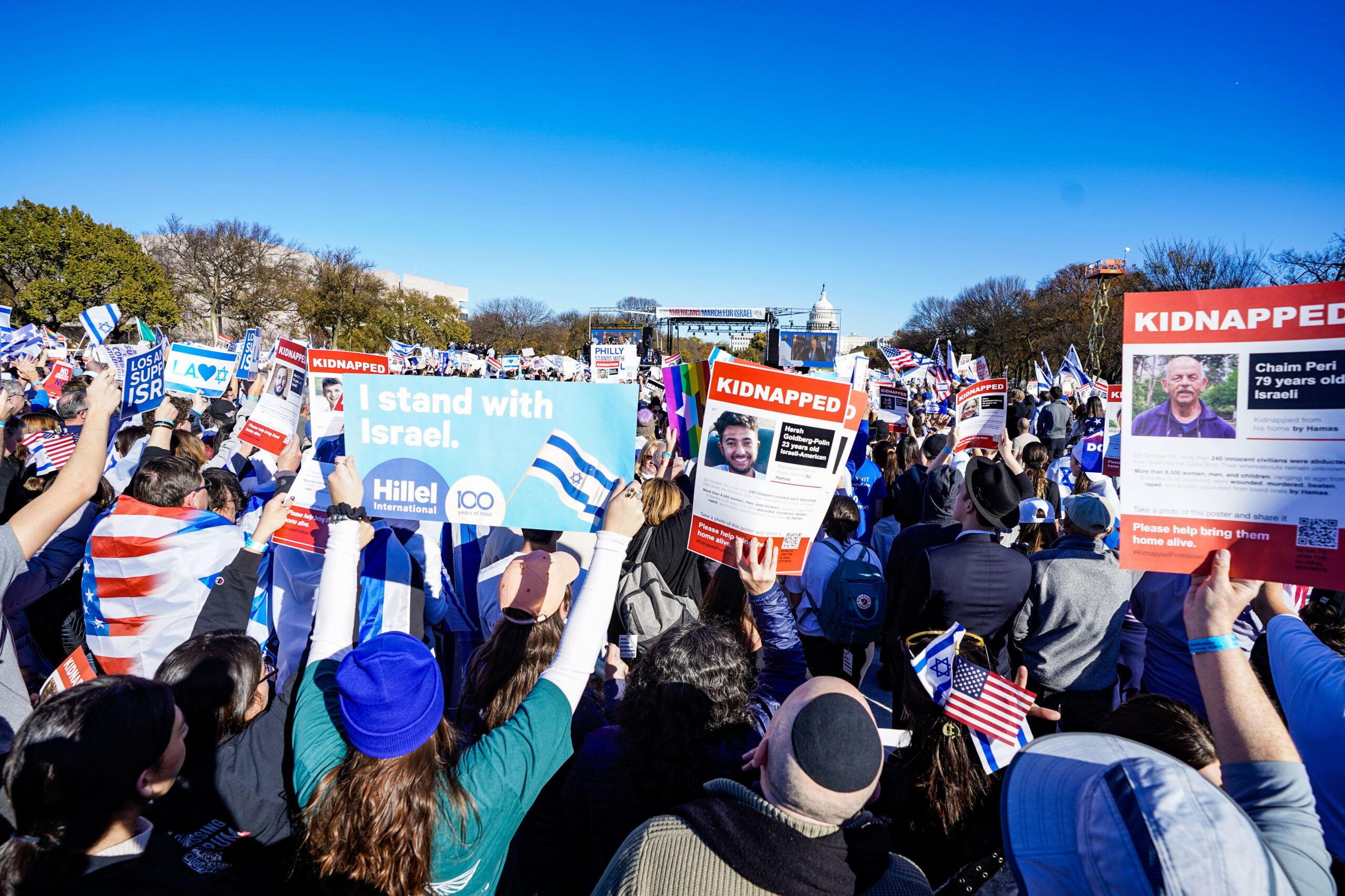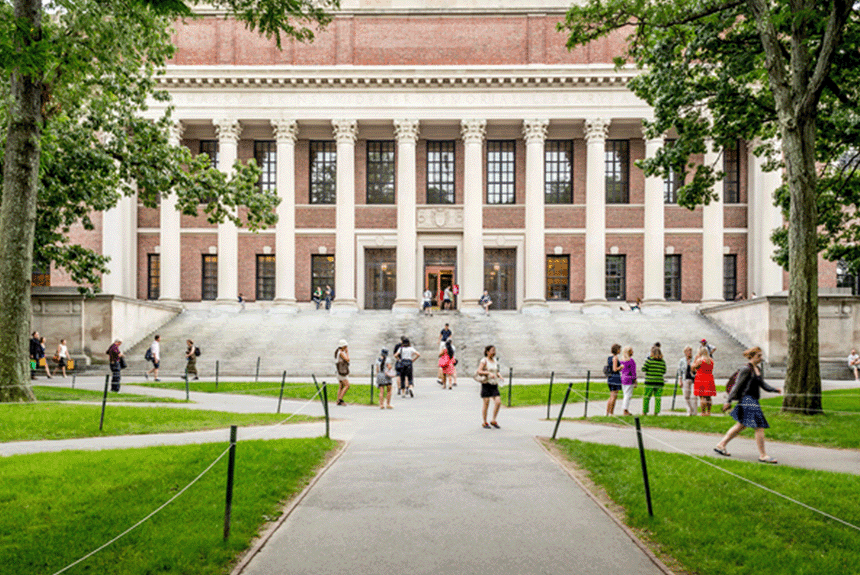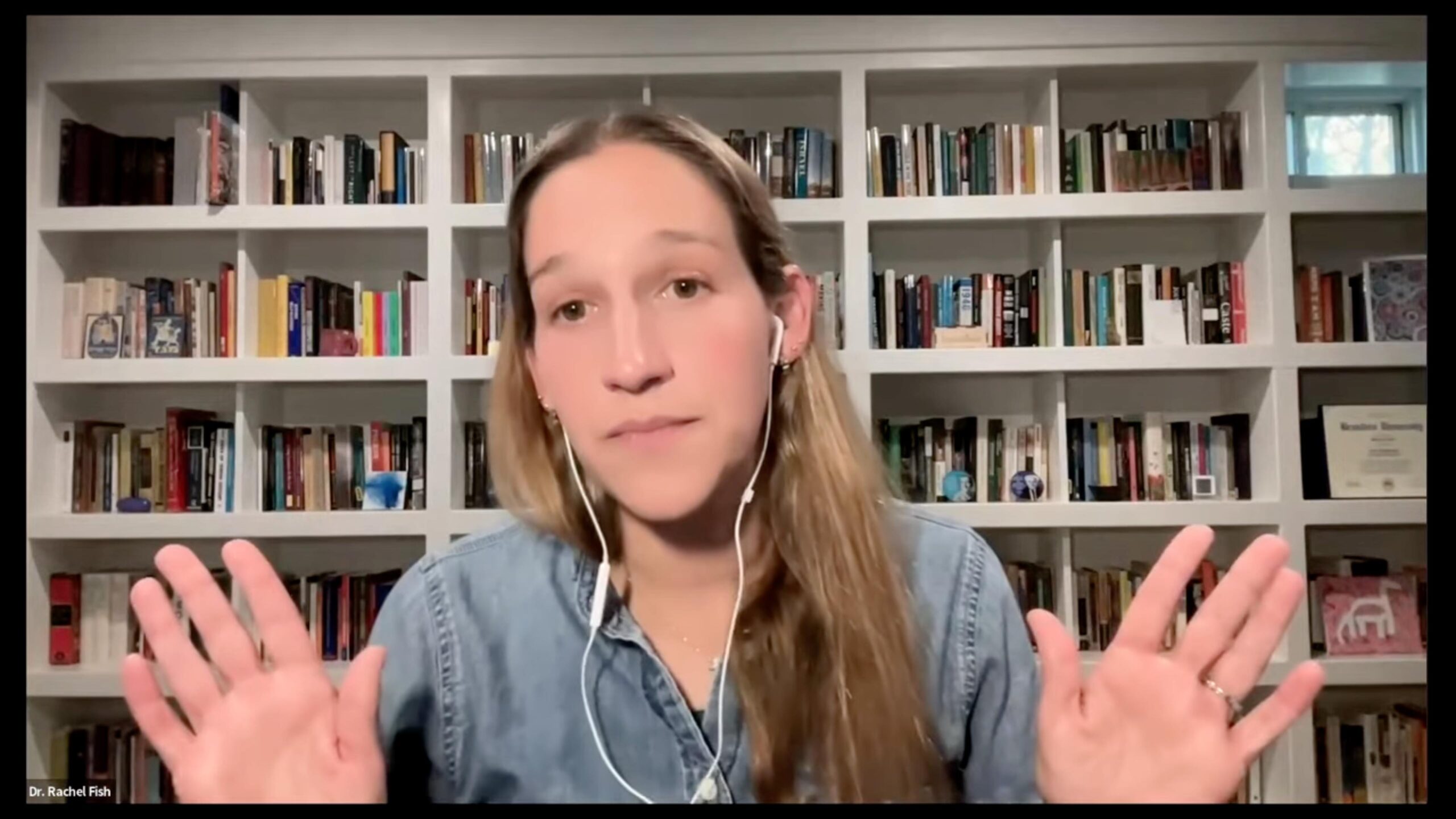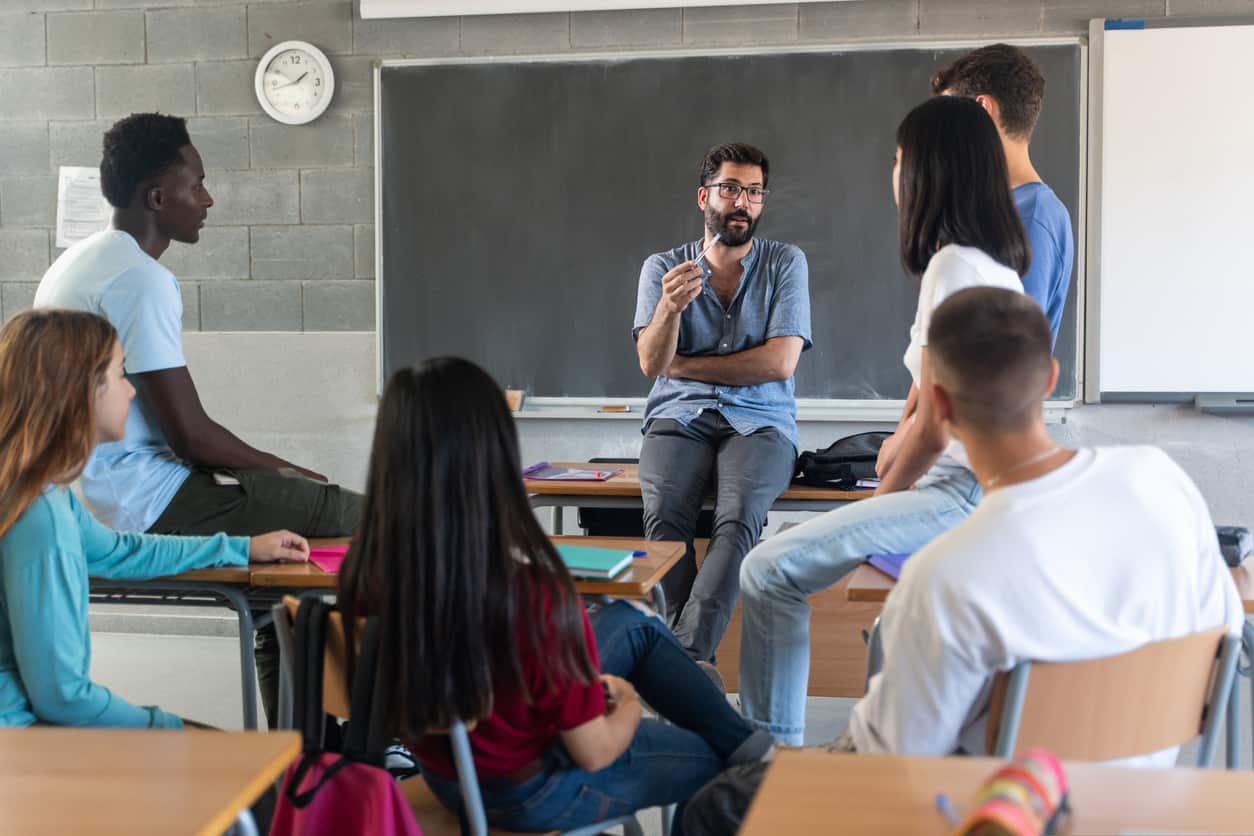The Jewish Community Relations Council of Greater Boston is expanding its work in the K-12 education space to strengthen partnerships with school districts and engage with parents and guardians. Sign up to receive future emails from the JCRC about programs and resources specifically geared toward families of K-12 students.
Action: Take Action
A Moment of Reckoning for University Presidents
By Marc Baker, President and CEO of Combined Jewish Philanthropies of Greater Boston
Thank you to the White House for clearly condemning the three university presidents after the congressional hearing on antisemitism earlier this week:
“It’s unbelievable that this needs to be said: calls for genocide are monstrous and antithetical to everything we represent as a country. Any statements that advocate for the systematic murder of Jews are dangerous and revolting — and we should all stand firmly against them, on the side of human dignity and the most basic values that unite us as Americans.”
To recap, three leaders of prestigious universities were unable or unwilling to answer a question about whether calling for genocide against all Jews constitutes bullying and harassment with a simple “yes.” Whatever the reasons for their equivocation, and while some are already trying to explain and walk back their testimonies, the hedging and contextualizing when asked this question felt like a frightening turning point for the American Jewish experience and for higher education.
These presidents are educating the future leaders of America and the world, and they are responsible for the safety and well-being of Jewish students on their campuses. Yet, they could not find the words to unequivocally condemn even the most egregious and extreme example of Jew hatred.
What does this say about the Jewish community’s place in these universities and in American society more broadly? What does it say about the academic, moral, and cultural brokenness of higher education?
I believe this is a moment of reckoning. Let’s hope that if we stay engaged and push these schools to change for the better, this will be the beginning of reformation and repair that is likely going to take decades.
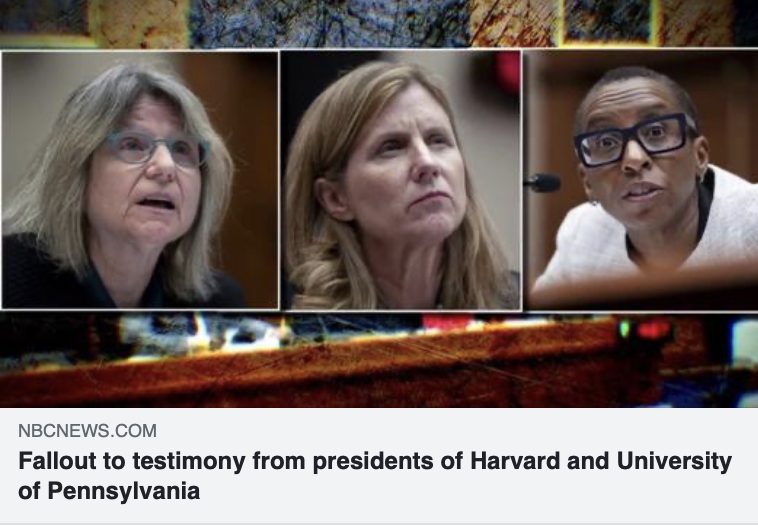
Israel-Hamas War Activism Resources
How to Fight Antisemitism on College Campuses
By Combined Jewish Philanthropies
American college campuses are increasingly hostile places for Jewish students. In the wake of the attacks by Hamas on Israel, we are seeing a surge of harassment, vandalism, and violence against Jewish people across the country. In Greater Boston, the increase in antisemitic and anti-Zionist incidents has been deeply alarming, particularly as it has impacted our Jewish students on college campuses.
All forms of antisemitism on campus are unacceptable. CJP will work tirelessly to combat it—and we need your help.
Take action
- Urge the U.S. Department of Education to make colleges safe from antisemitism. The Senate Resolution Condemning Antisemitism on Campuses passed, but we still need your help to make colleges and universities safer from antisemitism.
- Report incidents of antisemitism.
- File civil rights complaints with federal agencies, if applicable. Find information on the new Campus Antisemitism Legal Line (CALL).
- Share your story with CJP.
- Engage in conversation. Use these toolkits for dealing with antisemitic and anti-Israel incidents on campus: ADL’s “Tools for Dealing with Antisemitic and Anti-Israel Incidents on Campus” and AJC’s “Confronting Campus Antisemitism: An Action Plan for University Students.”
- Not On My Campus provides an actionable path toward No Tolerance, and empowers students, parents, alumni and other stakeholders to come together to call for change. https://notoleranceforantisemitism.adl.org/
CJP’s 5 Point Plan to Fight Antisemitism
Read more about our 5-point plan to fight antisemitism, focusing on strategies to increase public awareness, community engagement, allyship, education, and communal security.
Recent Antisemitism on Massachusetts College Campuses
By Combined Jewish Philanthropies
We are seeing a disturbing rise in antisemitism across our school campuses in Massachusetts. These are only a few recent examples of how these events have impacted Jewish students on campuses across the commonwealth.
Recent antisemitic incidents on Massachusetts college campuses
Boston University: Graffiti at BU Hillel Being Investigated as Possible Hate Crime by BUPD, Suffolk County DA
University of Massachusetts – Amherst: UMass Amherst student arrested for allegedly punching Jewish student and spitting on Israeli flag
Wellesley College: Wellesley College under federal investigation for alleged antisemitism
Toolkits and resources to respond to Jewish hate
- Report Campus Hate. This organization was created by Hillel International, the Anti-Defamation League and the Secure Community Network to empower Jewish students to address growing antisemitism on college campuses. Any incident reported through the website or phone is reviewed by a trained security professional who will work with law enforcement and the campus Hillel to file a report with the university, ensuring the proper tracking of antisemitic crimes. Additionally, students can be connected to wellness services, as well as tools and resources to help improve campus climates.
- Reach out to CALL, the Campus Antisemitism Legal Line. It is staffed by a team of volunteer lawyers and overseen by Hillel International, the Anti-Defamation League, the Louis D. Brandeis Center for Human Rights Under Law and Gibson, Dunn & Crutcher LLP. Students, parents, faculty members and staff can report an incident online or by texting “CALLhelp” to 51555.
- Visit the AMCHA Initiative, a nonprofit organization dedicated to investigating, documenting, educating about and combating antisemitism at institutions of higher education in America. Its comprehensive database of antisemitic activity on U.S. college and university campuses is available here.
- Use the IAC’s Israel-Hamas war activism toolkit to be informed to stand up on campus.
- Use this Student Action Plan toolkit from AJC and share this toolkit for university administrators with your schools.
- Keep visiting the College Students resources page on FaceJewishHate.org for new tools and action steps on how you can address this surge of harassment, vandalism and violence against Jewish students.
How to Respond to Questions About Israel
Our community has grown increasingly anxious about rising antisemitism. We are urging schools and universities to respond and enforce zero tolerance for acts of antisemitism and Islamophobia or other forms of hate, while also reminding them that they have a responsibility to create safe environments.
We have heard from our community that many of these institutions are failing us in this moment. In this JCRC Speaker Series, Dr. Rachel Fish speaks about how to respond to questions about Israel: How do we discuss the situation with others? How do we handle these conversations effectively both in person and on social media with a goal of engaging others in conversations?
Helping Students in Difficult Times
By Rich Tenorio
For educators in the Massachusetts public school system, there are resources available for helping students understand the current situation between Israel and the Gaza Strip following the Oct. 7, 2023, Hamas terror attacks and Israeli response. These resources range from a toolkit on antisemitism to tips on how to talk to teens about a challenging subject.
- The Anti-Defamation League, a partner of CJP, has published “6 Tips for Supporting Jewish Students in the Classroom.”
- The ADL also has a lesson plan titled, “Challenging Antisemitism: Debunking the Myths and Responding with Facts.”
- Another ADL resource is a “A Guide for Education Professionals, State Education Departments, & School Administrators on Implementing the U.S. National Strategy to Counter Antisemitism in K-12 Schools.”
- On JewishBostonTeens.com, there’s “Supporting Our Youth & Teens: Learning & Talking About Israel.”
- Boston-based nonprofit Facing History & Ourselves, which is also a partner of CJP, gives suggestions on “Responding to Antisemitism in the Classroom.”
Rich Tenorio covers antisemitism news for JewishBoston.com. His work has appeared in international, national, regional and local media outlets. He is a graduate of Harvard College and the Columbia University Graduate School of Journalism. He is also a cartoonist. Email him at richt@cjp.org.
Implementing the U.S. National Strategy to Counter Antisemitism
ADL’s guide for education professionals, state education departments, and school administrators.
Welcoming Allyship
By Melissa Garlick, Senior Director of Combating Antisemitism and Building Civic Engagement at Combined Jewish Philanthropies
Like many of you, I am gutted, devastated, and heartbroken—for my Israeli friends and family, for our Jewish community, and for the future we work toward every day: our vision for freedom and safety. To me, this is a moment of reckoning—there is heightened urgency for the work we do here to deepen allyship across communities.
In the days immediately after the terror attack by Hamas, I recalled the emotional response of when I experienced significant and traumatic loss before—that feeling of loneliness, not understanding why everyone around me was continuing with daily life and I was standing still, and feeling confused and pained by friends and acquaintances who didn’t reach out to see how I was doing. When this has happened to me before, for weeks and months after, I closed my circle, in some cases held grudges, and pushed others away. In those moments, it felt like that was what I needed to protect myself and my own grief. But the feeling of loneliness and anxiety compounded and kept growing.
After the horrific attacks by Hamas, we face lives taken too soon and families ripped apart, the massacre of Jews, the panic over our existence as a people, and the future we are leaving for our children. This time, I have been so heartened by the many statements of solidarity for Israel and the Jewish community by elected leaders and community leaders. What’s been especially meaningful for me has been the small gestures of love and support, like my neighbor checking to see if I could use some help, knowing my personal and professional proximity to the impacts of the terrorist attacks.
At the same time, it has been incredibly distressing that many of the people I’ve worked with in progressive spaces have either justified terrorism and antisemitism or failed to call it what it is: the deadliest attack on Jews since the Holocaust.
As Amy Spitalnick, CEO of the Jewish Council for Public Affairs (JCPA), said immediately after the attacks: “The epigenetic trauma of seeing Jews pulled from their homes, kidnapped, and killed—it’s real. This does not take away from the real suffering of the Palestinian people, and the many other layers to the conflict and the region. But when we see people celebrating the massacre of Jews as ‘resistance,’ that is not OK—and it does nothing to advance peace and safety.”
Allyship can be defined, in this moment, as the action and commitment by individuals and organizations to listen and learn about the impact of the attacks, to commit to take action themselves and in their communities to root out antisemitism and to stand with the Jewish community, even when it’s hard for them. Allyship requires learning from a community how best to show up for them. We are so appreciative of the statements and expressions of solidarity from our state and city lawmakers, interfaith leaders, partners in the Black and Latinx communities, schools, and other civic organizations.
As this war to eliminate Hamas grinds on, we need to sustain and build meaningful allyship beyond these initial statements. Allyship requires learning from a community how best to show up for them. While many allies are proactive, we can and should reach out to them too, to invite and call them in. Solidarity is necessary and critical in the short-term during this crisis, but building allyship is long-term work that entails learning (and mistakes) and requires grace and compassion. Allyship is born from trust and accountability to one another.
The trauma of the last two weeks has affected so many of us. Even conversations with like-minded people can be difficult. But if you’re ready to start engaging with potential allies, here are some suggestions:
- Remember that it’s OK not to be OK, and please make sure you’re reaching out for the support you need.
- Distinguish between the detractors and those who are likely willing to engage with you, and don’t take the bait from those just looking to argue.
- For those who have potential to be allies, call them into conversation, invite them to learn, and raise their awareness about the communal pain and impacts.
- With those friends or colleagues who have been silent in this moment or have tried to show empathy but perhaps have missed the mark, tell them you are hurting and that you want to talk. Reach out for both the support and the opportunity for them to be in allyship with you. Help them understand what you and the Jewish community are going through.
These are difficult and exhausting conversations—but this work is needed now more than ever. We cannot fight the antisemitism that has been unleashed and rebuild by ourselves. And we must know that we are not alone in this moment of crisis.
Stay informed with our antisemitism newsletter
The Jewish Community Rejects Bigotry and Hate
By Jewish Community Relations Council of Greater Boston
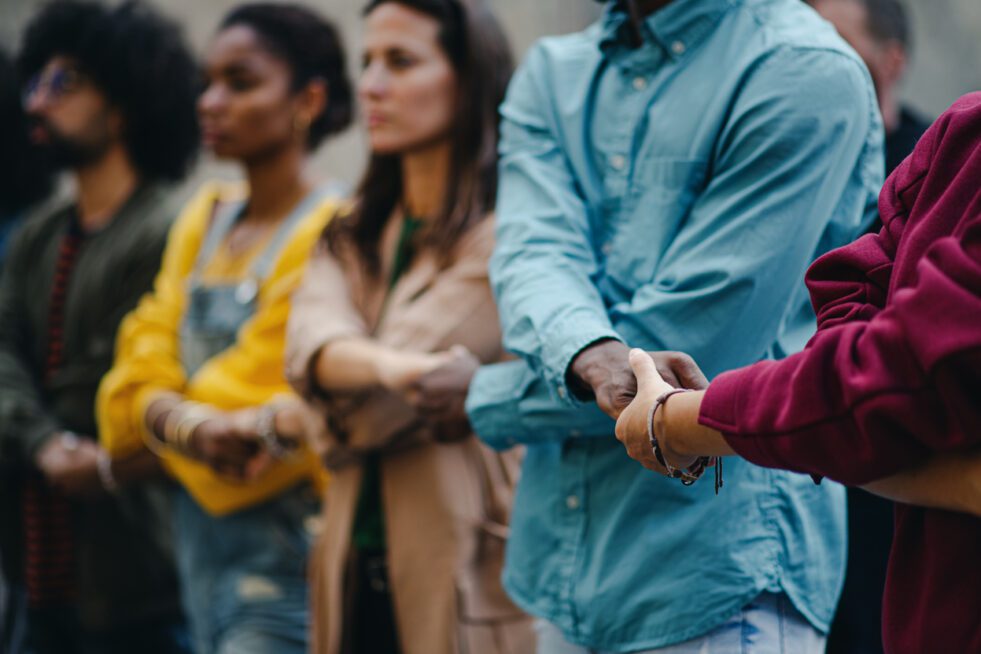
We are grateful to Jewish Council for Public Affairs for leading our community in unequivocally saying that the Jewish community rejects Islamophobia, anti-Arab hate, antisemitism, and all forms of bigotry.
We are proud to have been part of the drafting of this statement on behalf of our community.
The Jewish Community Rejects Bigotry and Hate
By Jewish Council for Public Affairs
In the wake of the attack in which a six-year-old Muslim boy was murdered and his mother critically injured by a man who targeted them because of their faith and the Israel/Hamas war, over 100 Jewish groups released a statement today condemning the attack and rejecting any effort to exploit the situation in Israel and Gaza to spread hate and bigotry.
The statement, which was organized by the Jewish Council for Public Affairs and signed by 130 national and local groups, explicitly rejects “Islamophobia, anti-Arab hate, antisemitism, and all forms of bigotry”:
“We stand in solidarity with all our neighbors under threat, and urge our elected and civic leaders, law enforcement, schools and universities, and employers to make clear there will be zero tolerance for any act of hate.”
“As Jewish leaders, we want to be very clear: we unequivocally reject those targeting our Muslim, Arab, and Palestinian American neighbors with bigotry, threats, and violence,” said Amy Spitalnick, CEO of the Jewish Council for Public Affairs. “This is a moment of profound pain for our community—and we refuse to allow some to exploit that pain as an excuse to spread bigotry or extremism of any kind. Our communities’ safety is inextricably linked, and only by coming together and calling it out can we defeat the forces of hate and violence.”
You can read the full text of the statement here and below:
Since Hamas’ terror attacks in Israel on October 7th, we’ve seen bigots and extremists exploit the crisis to spread hate, disinformation, and extremism.
This is a moment of deep Jewish pain, mourning the lives taken and praying for the safe release of the hostages in Gaza—and this pain and fear is compounded by a horrific rise in antisemitism here in the United States and around the globe.
We also know that we are not the only ones being targeted in this moment. Our Muslim, Arab, and Palestinian American neighbors are facing bigotry, threats, and violence—including the despicable murder of a six-year-old child this weekend outside Chicago, by a man who reportedly espoused anti-Muslim hate.
Let us be unequivocally clear: The Jewish community rejects Islamophobia, anti-Arab hate, antisemitism, and all forms of bigotry. Particularly as extremists continue to exploit this moment, we are reminded that all of our communities’ safety and futures are inextricably linked—and recommit ourselves to fighting hate in all its forms.
We stand in solidarity with all our neighbors under threat, and urge our elected and civic leaders, law enforcement, schools and universities, and employers to make clear there will be zero tolerance for any act of hate.
View the complete list of groups and organizations that signed the statement.

